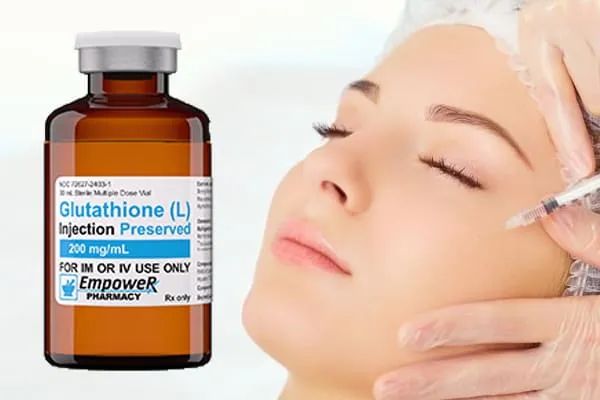What are Skin Whitening Injections
Skin whitening injections are a cosmetic procedure designed to lighten the skin by reducing the production of melanin, the pigment responsible for skin color. These injections typically contain substances like glutathione, which is a powerful antioxidant, and sometimes other ingredients such as vitamin C. The popularity of these injections has grown globally, with many people seeking a brighter and more even skin tone. However, it’s crucial to understand the procedure’s mechanism, the potential risks involved, and the safety considerations before undergoing any treatment. The concept behind skin whitening injections is to interfere with the process that creates melanin, thereby leading to a lighter complexion. But, one must weigh the benefits against the potential health implications, as the process involves various factors, including the dosage, frequency, and quality of the injected substances.
How Do Skin Whitening Injections Work
Skin whitening injections work by introducing substances into the body that inhibit the production of melanin. The primary active ingredient in many skin whitening injections is glutathione. Glutathione works by interfering with the enzyme tyrosinase, which is essential for melanin production. By inhibiting tyrosinase, glutathione can reduce the amount of melanin, leading to lighter skin. The process of injection typically involves administering the substance intravenously or intramuscularly. The frequency and dosage vary depending on the individual, the specific product used, and the desired outcome. It is important to note that the effectiveness of these injections can vary, and results are not always guaranteed. Therefore, understanding the process ensures that you are well-informed about how these treatments affect your body and what to expect from them.
The Active Ingredients

The most common active ingredient in skin whitening injections is glutathione. Glutathione is a naturally occurring antioxidant produced by the liver, which helps to neutralize free radicals, boost the immune system, and detoxify the body. However, the use of glutathione in skin whitening is an off-label application. In addition to glutathione, some injections may contain vitamin C, which acts as an antioxidant and can enhance the effects of glutathione. Other less common ingredients might include alpha-lipoic acid or other substances that are believed to promote skin lightening. The quality and purity of these ingredients are critical, as they can significantly impact the safety and effectiveness of the injections. Consulting a healthcare professional to understand the ingredients and their potential effects is crucial to determine the safety and suitability of the procedure.
The Process of Injection
The process of skin whitening injections typically involves administering the solution intravenously or intramuscularly. The frequency of injections can vary, ranging from weekly to monthly, depending on the concentration of the active ingredients and the individual’s skin type and desired outcome. The administration is usually performed by a healthcare professional or a trained practitioner. Before the injection, the skin is usually cleaned and sterilized. The duration of the injection itself is relatively short, but the overall procedure includes a consultation to assess the patient’s skin type, medical history, and expectations. It’s crucial to ensure that the practitioner follows sterile procedures to minimize the risk of infection. The injection process should always be conducted in a clean and safe environment. Be sure to discuss any potential risks with your healthcare provider.
Top 5 Safety Facts About Skin Whitening Injections
Fact 1 Effectiveness

The effectiveness of skin whitening injections can vary greatly from person to person. Factors such as skin type, dosage, and the concentration of active ingredients play a significant role in the final results. Some individuals may experience noticeable skin lightening, while others may see minimal changes. The results are not always permanent, as the skin can gradually return to its original color over time. There is also limited scientific evidence to support the long-term effectiveness and safety of these injections. Clinical trials and rigorous research are often lacking, and the results can be unpredictable. Setting realistic expectations is crucial, and a detailed discussion with a dermatologist or healthcare provider is essential to understand the potential outcomes and limitations.
Fact 2 Side Effects
Skin whitening injections can cause several side effects, some of which are mild and temporary, while others can be more serious. Common side effects include injection site reactions, such as redness, swelling, and pain. Other potential side effects include nausea, vomiting, and headaches. In rare cases, more severe side effects like allergic reactions and infections have been reported. The risk of side effects depends on various factors, including the quality of the ingredients, the expertise of the practitioner, and the individual’s health conditions. It is critical to be aware of all potential side effects before undergoing the procedure and to seek medical attention if any concerning symptoms arise.
Fact 3 Dosage and Frequency
The dosage and frequency of skin whitening injections vary depending on the product used, the individual’s skin type, and the desired outcome. There is no standardized dosage for skin whitening injections, and the frequency can range from weekly to monthly injections. The dosage is usually determined by the practitioner based on their assessment of the patient. It is crucial to adhere to the recommended dosage and frequency to minimize the risk of side effects. Overdosing or frequent injections can increase the likelihood of adverse reactions and health risks. Always consult with a qualified healthcare professional who can determine the appropriate dosage for your specific needs and health status.
Fact 4 Regulation and Standards

The regulation and standards for skin whitening injections vary significantly depending on the country. In some regions, these injections are not well-regulated, and the quality of the products and the training of the practitioners may not be properly monitored. This lack of regulation poses a significant risk to consumers, as it can lead to the use of unsafe ingredients, incorrect dosages, and unhygienic practices. Always ensure that the injections are administered by a licensed and trained healthcare professional in a regulated environment. It is also important to research the product and the clinic to verify its credibility and reputation. Check for certifications, licenses, and reviews to ensure that you are receiving safe and effective treatment. Choosing a reputable clinic and a qualified practitioner is critical to minimizing potential risks and ensuring a safe procedure. Check for local health authority guidelines.
Fact 5 Long-Term Effects
The long-term effects of skin whitening injections are not fully understood due to a lack of extensive research. There is limited data on the long-term safety and efficacy of these injections. Some potential long-term effects include the risk of chronic health problems. Some studies suggest that prolonged use of certain ingredients in skin whitening injections may be linked to certain health risks, though more research is needed. The long-term effects can vary depending on the ingredients used, the dosage, and the individual’s health. Consulting a healthcare professional to discuss the potential long-term risks and to assess the suitability of the procedure is important. Be sure to discuss these risks with your provider to make an informed decision.
Risks and Side Effects of Skin Whitening Injections
Skin whitening injections carry several risks and potential side effects that individuals should be aware of before undergoing the procedure. The severity of these risks can range from mild to severe, and some can have long-term health implications. It’s essential to weigh the potential benefits against the risks and to make an informed decision based on medical advice. Understanding the common and serious side effects is essential for making an informed decision. Consulting with a dermatologist or healthcare provider is crucial to discussing these risks and determining if skin whitening injections are appropriate for you. It is also important to seek immediate medical attention if any severe side effects arise.
Common Side Effects

Common side effects of skin whitening injections include injection site reactions, such as pain, redness, and swelling. Some individuals may also experience flu-like symptoms such as nausea, vomiting, headaches, and fatigue. These side effects are often temporary and typically resolve within a few days or weeks. They can be managed with over-the-counter medications and supportive care. However, if these symptoms persist or worsen, it’s important to seek medical attention. Other mild side effects may include skin discoloration, dryness, and itching. These reactions can be a sign of an allergic reaction or an adverse response to the injected substances. Consulting with a healthcare provider about any side effects experienced is essential to address them and ensure the safety of the procedure.
Serious Risks and Complications
Serious risks and complications associated with skin whitening injections can include infections at the injection site, allergic reactions, and even organ damage. Allergic reactions can manifest as skin rashes, hives, or, in severe cases, anaphylaxis, which is a life-threatening condition. Infections can occur if the injections are not administered under sterile conditions. Some ingredients used in skin whitening injections may pose a risk of organ damage or other serious health complications. The use of unregulated or counterfeit products can significantly increase the risk of adverse effects. It’s crucial to choose a reputable clinic and a qualified practitioner to minimize these risks. Seeking immediate medical attention if any severe symptoms or complications arise is critical. This includes shortness of breath, chest pain, or severe swelling.
Who Should Avoid Skin Whitening Injections
Certain individuals should avoid skin whitening injections due to potential health risks. This includes people with a history of allergies to any of the ingredients used in the injections. Individuals with pre-existing medical conditions, such as kidney or liver disease, should also avoid these injections, as the procedure can potentially worsen their condition. Pregnant or breastfeeding women should refrain from this procedure due to the potential risks to the fetus or infant. People with certain skin conditions, such as eczema or psoriasis, should also consult with a dermatologist before considering skin whitening injections. A healthcare provider can help determine the suitability of the procedure based on your individual health profile and any existing medical conditions. It is important to share your complete medical history with your healthcare provider to ensure your safety.
Alternatives to Skin Whitening Injections

There are several safer alternatives to skin whitening injections that individuals can consider to achieve a brighter and more even skin tone. These alternatives include topical treatments, such as creams and serums containing ingredients like retinoids, vitamin C, niacinamide, and alpha hydroxy acids (AHAs). These products can help to reduce hyperpigmentation and improve skin texture with consistent use. Other effective options include chemical peels, which exfoliate the skin and promote cell turnover. Microdermabrasion is another option, which involves using a device to gently exfoliate the skin and improve its appearance. Laser treatments can also be used to target specific areas of hyperpigmentation. These alternatives are generally safer and less invasive than injections, but it is essential to consult with a dermatologist to determine the most appropriate treatment for your skin type and concerns.
Before making any decisions, consult with a dermatologist to discuss the best options for you. Remember to prioritize your health and well-being.
